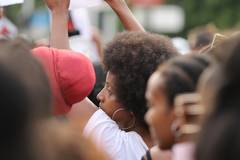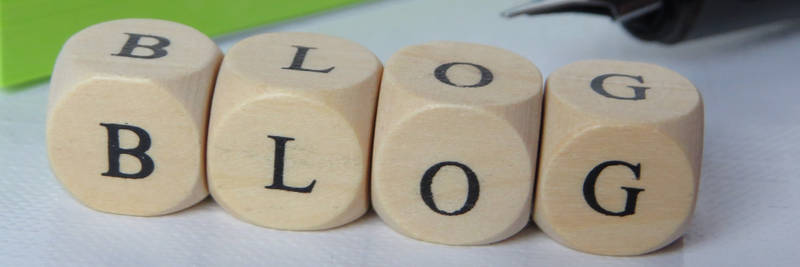A Perspective on Racial Justice and Police Use of Lethal Force
07/10/2020 11:24:18 AM
CBE members Nancy Friedman, Alan Rubin, Anne Wolf, Judy Sherman, Susan Marcus, and Leslie Lipstein
| Author | |
| Date Added | |
| Automatically create summary | |
| Summary |

“This is the same damn fight that my grandmother and my mother had. I’m 20 years old and I’m having the same damn fight.” (a protester)
We are angered, deeply saddened and shaken by the senseless murders of George Floyd, Ahmaud Arbery, Breonna Taylor, and countless other Americans who lost their lives because they were black. And what we are feeling isn’t comparable on any level to the fear, pain, anger, and exhaustion that our Black friends and neighbors must be wrestling with. The long history of systemic racism and injustice in America, from slavery to lynchings to Jim Crow to mass incarceration, fueled these tragic and unnecessary deaths and this moment challenges each of us to commit to change and reform.
For far too long, minorities, whether they be Black, Asian, Hispanic, or Jewish, have suffered from fear of the other. Rabbi Hillel asked years ago three important questions: “If I am not for myself, who will be for me? But if I am not for others, what am I? And if not now, when?” Nothing could be more apropos of this than what is going on in the streets of cities across the United States. It is consistent with Jewish ethics and history to take positive action to aid not only ourselves, but others suffering prejudices of all sorts, systemically baked into our society and national culture, and now is the time for action.
We must do what we can to fight for meaningful policy change to prevent police brutality, address racial inequality, condemn racism, injustice and hate, and listen to those voices that have been silenced for far too long. If we are white, we have a responsibility to stand as allies to the Black community and fight injustice. As Jews, we have an obligation to stand up to hate in all its forms, and to condemn and fight anti- Semitism, Islamophobia, anti-LGBTQ, and racism. As the ADL said recently, “to have allies, you need to be an ally.”
So whether we’re donating to a bail fund, attending a protest or march, educating ourselves, standing up when we hear racist language or racial stereotypes, or holding leaders accountable for change, we all have a role to play to help our country change.
If you agree, please contact Sens. Michael Bennet and Cory Gardner to support the Justice in Policing Act of 2020, a comprehensive effort to address police brutality. The legislation, introduced by the Congressional Black Caucus and already passed by the House, would hold police accountable in court; improve police training and practices by ending racial and religious profiling, mandating training on racial bias, banning no-knock warrants in drug cases, banning chokeholds and carotid holds, limiting the transfer of military-grade equipment to state and local enforcement, and requiring police to wear body cameras; change use of force standards; improve transparency into policing by collecting better data of police misconduct and use of force; and make lynching a federal crime.
If you choose to provide financial support to organizations doing vital work to eliminate racial disparities, here are a few options:
- Color of Change is a national online force dedicated to holding corporations
and elected leaders accountable in the fight to end practices and systems that unfairly hold Black people back. https://colorofchange.org/. - Higher Heights supports the Black women’s leadership pipeline.
- NAACP Legal Defense Fund fights for racial justice.
- National Bail Out.
- Colorado Freedom Fund.
- The Bail Project is giving bail assistance to protesters.
- Black Lives Matter.
- Movement for Black Lives.
- George Floyd Memorial Fund.
- Support the family of Ahmaud Arbery .
- If you want to support Black-owned businesses, you can find lists of resources here.
Another step we can take is to educate ourselves. Here are some suggestions:
- Books recommended by Black leaders in Colorado .
- A list from Goodreads’ social justice book club
- Another list
- The African American Literature Book Club, the oldest and largest online bookstore dedicated to international Black literature.
- Anti-racist kids’ books.
If you’re a white ally, here are some interesting resources:
- “75 Things White People Can Do for Racial Justice”
- “This Teen Breaks Down 16 of the Unwritten Rules He Has to Follow as a Young Black Man” .
- A powerful video by Trevor Noah.
- “5 tasks for white people struggling with issues of race”
- “I Don’t Need ‘Love’ Texts from my White Friends”.
Join New York Times best-selling author and award winner Kwame Alexander on Wednesday, July 15 from 2-3 pm ET (Noon-1 pm MT). Mr. Alexander will read from and discuss The Undefeated, a book and poem that is a love letter to Black life in the US, with a Q&A following. The book is about the unspeakable trauma of slavery, the Civil Rights Movement, and the endurance and spirit of those surviving and thriving in the present. Register here.
And if you’re joining the protests, please wear a mask!
Sun, October 19 2025
27 Tishrei 5786
The midah of the month of October is Joy (simchah).
Useful Links
- Mi Sheberach Form (prayer list)
- Make a Donation
- Order a Yahrzeit Plaque
Friday Night
| Candle Lighting : 6:00pm |
Shabbat Day
| Havdalah : 6:58pm |
Upcoming Programs & Events
Oct 22 |
Oct 28 |
Nov 1 |
Nov 1 |
Nov 1 |
This week's Torah portion is Parshat Noach
| Shabbat, Oct 25 |
Candle Lighting
| Friday, Oct 24, 6:00pm |
Havdalah
| Motzei Shabbat, Oct 25, 6:58pm |
Rosh Chodesh Cheshvan
| Wednesday, Oct 22 |


